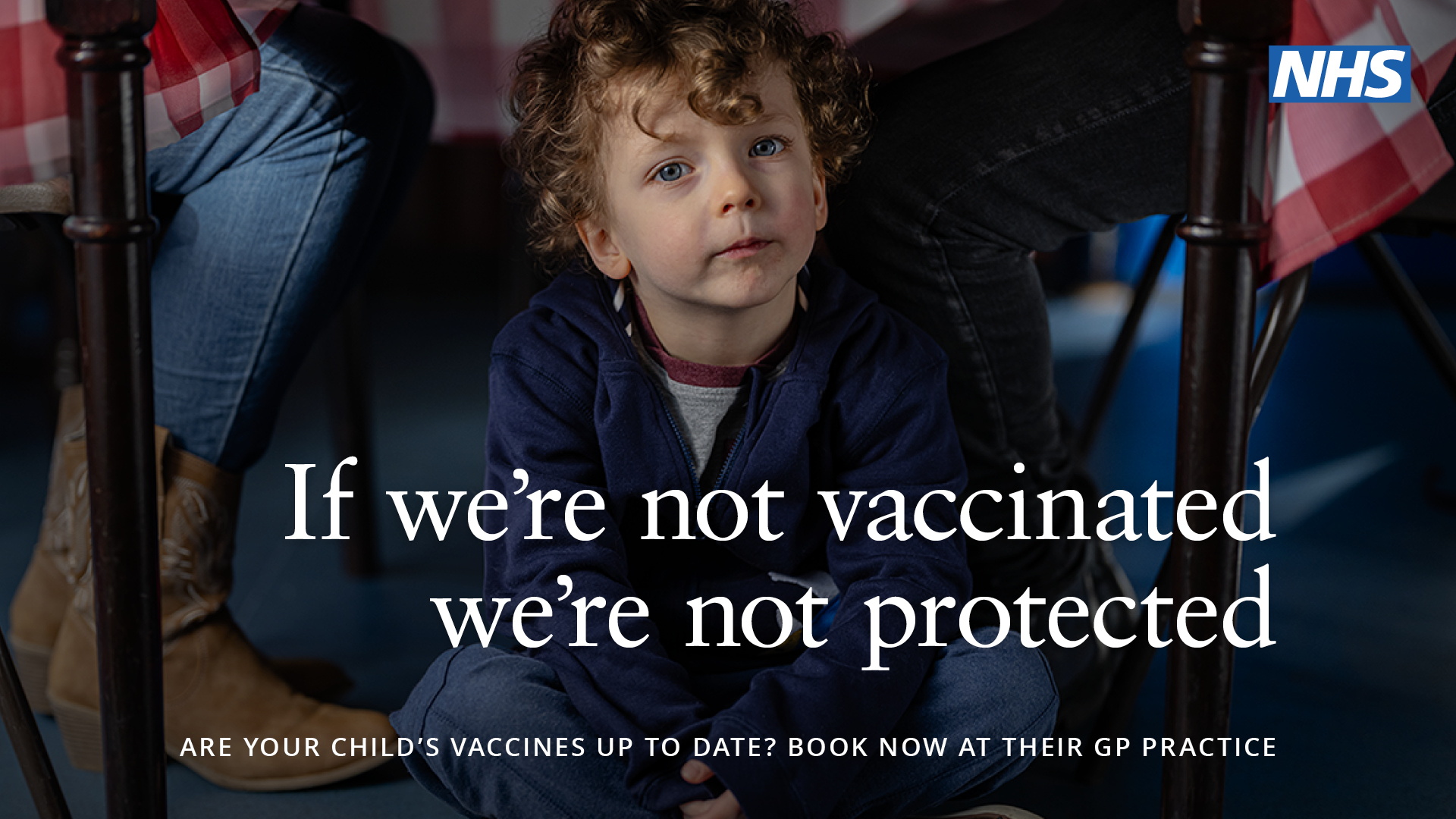With a week to go until schools re-open for the new term, the NHS is reminding Lincolnshire parents and guardians that one of the best ways to protection children from getting seriously ill from preventable diseases is by making sure they’re up to date with all NHS routine vaccinations.
A new national NHS campaign ‘Back to School’ has been launched to encourage parents and guardians whose children aged 0-5 years old may have missed, or be due, a vaccine to get their children vaccinated.
Seeing your child get sick is any parent or guardian’s worst nightmare, but for preventable childhood illnesses like whooping cough and measles, staying up to date with routine vaccinations, which are free, can help protect children from getting seriously ill.
“Every year the UK’s childhood vaccination programme prevents around 5,000 deaths and more than 100,000 hospitalisations in England, and has helped ensure the UK is free or diseases like polio. However, in recent years there has been a trend of lower vaccine uptake,” comments Dr Sunil Hindocha, Medical Director, NHS Lincolnshire ICB.
“Consequently as a country we no longer have the high levels of immunity needed for highly infectious diseases like measles to be eliminated. This has led to increased risk for those who are unvaccinated or under-vaccinated, which is why it is particularly important to get your children vaccinated – to protect them against preventable diseases.”
Preventable diseases like measles, whooping cough, rubella, mumps and more can have a significant impact on a child’s life – they can miss education due to time spent unwell, be hospitalised, and have life-long complications such as deafness, blindness, encephalitis (infection of the brain) and paralysis. These infections can sometimes cause death.
“Across the country we have seen increased cases of measles and whooping cough, with outbreaks in some areas. This is why it is urgent to ensure children are vaccinated and protected against these diseases,” adds Sunil.
The ‘Back to School’ campaign is the second phase of a national campaign that launched in March 2024, and will run from 26 August until 4 October 2024, deliberately timed to coincide with children returning to school, to reduce the number of unvaccinated children and the risk of diseases like measles spreading as they did in 2023.
More specifically, the campaign is aiming to increase vaccine uptake by increasing parents’ intention to take up childhood vaccines, increasing their understanding of the need and value of vaccination including the risks of not being vaccinated, increasing knowledge of what vaccines children need and when and how many doses, and increasing parents’ confidence in the effectiveness of childhood vaccines.
“We know that the first part of the campaign earlier this year resulted in parents taking action to check their child was vaccinated and protected, and we need to see more of this as our children get ready to go to school this autumn,” says Sunil. “It’s really simple, if your child isn’t vaccinated, they are not protected. To be sure, check their red book or speak to your GP practice.”
Parents will be contacted by their GP practice when their child is due a routine immunisation. If your child has missed any vaccinations, you should contact your GP practice. Although it is best for children to have their vaccinations according to the NHS vaccination schedule, it’s never too late to check if they can still have them. You can find the NHS vaccination schedule and more information about childhood vaccinations here www.nhs.uk/childhoodvaccinations.
